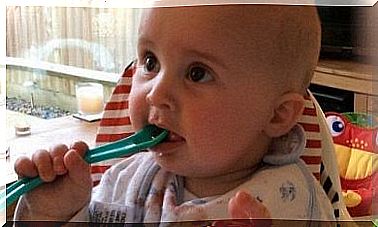Maternal Anxiety During The Baby’s First Months – Being Parents

Before becoming a mother, how did you imagine the first months with your baby? You were probably expecting a sweet period full of positive emotions. Overflowing love, the excitement of the new life that grows with you, fulfillment and satisfaction… It is the image of motherhood that is sold to us from the outside and that is why many women can feel enormous guilt when the first months with their babies are colored by fear and uncertainty. However, maternal anxiety in the postpartum period and beyond is normal and we need to be prepared to deal with it.
It is true that women who have already experienced anxiety are more likely to manifest it at this time.
Even those who have never had such problems can develop symptoms due to the huge changes that come with becoming a mother. In any case, it is important to know where the discomfort is coming from and what resources we can put in place to alleviate it.

How to detect maternal anxiety?
Women who are already experiencing anxiety will be able to easily identify the symptoms when they appear. But for those who are experiencing it for the first time, it can be overwhelming. They may even think that something is physically wrong with them. This is why it is important to be aware of the main signs of anxiety :
- Physiological symptoms such as shortness of breath, chest tightness, muscle tension, rapid heartbeat, or sweating. Somatization can also manifest as abdominal pain, headache, or any other pain without medical explanation.
- Recurring thoughts. About the baby’s health, performance as a mother, or whatever. But, at the end of the day, these are excessive concerns that generate a lot of uneasiness and which the woman cannot get rid of.
- Repetitive behavior without function can occur, such as repeated leg movements or biting your nails. It is also possible to fall into compulsive behaviors such as overeating. And even some situations can be avoided, such as staying away from the baby for more than a few minutes, to avoid anxiety and worry.
Why does maternal anxiety manifest itself in the first months of a baby’s life?
There are several possible reasons for maternal anxiety during the first months of a baby’s life. All are linked to the transition involved, at different levels, in becoming a mother. Thus, among the main causes of anxiety, we can cite the following:
- Worried about the health of the baby. The child’s desire to be healthy and to develop properly can lead the mother to become restless and hypervigilant. When the fear that something bad is happening to the child is disproportionate or interferes with their well-being, anxiety takes over.
- Fear of not being up to it. Being a mother involves taking responsibility for a life that depends almost entirely on yourself. Your well-being and happiness are determined, to a large extent, by your mother’s performance. This can trigger high levels of anxiety and fear of not knowing how to act properly.
- Fear of losing your identity. Without a doubt, motherhood becomes, from the first moment, one of the most relevant roles in a woman’s life. This is why it is common for many mothers to fear that this new role will absorb them in such a way that it prevents them from continuing to develop as women, wives or professionals. In short, they fear that their identity will be reduced to the role of mother.

What can we do about it?
The percentage of women who experience anxiety after having a baby is high. Therefore, if you find yourself in this situation, you should know that you are not alone.
First of all, let go of the guilt. Everything you are feeling at the moment is normal. Plus, your anxiety doesn’t make you a bad mom. On the other hand, it is important to reduce your level of requirement. This is because you don’t have to be perfect for your child to grow up healthy and happy.
Finally, try to review your beliefs and thoughts and confront them with reality. If they are not objective or appropriate, replace them with more appropriate ones. You may also find it helpful to learn breathing or relaxation techniques to regulate your anxiety level. But first of all, be compassionate with yourself and seek professional help if anxiety begins to interfere with your life. Your well-being is that of your baby.









